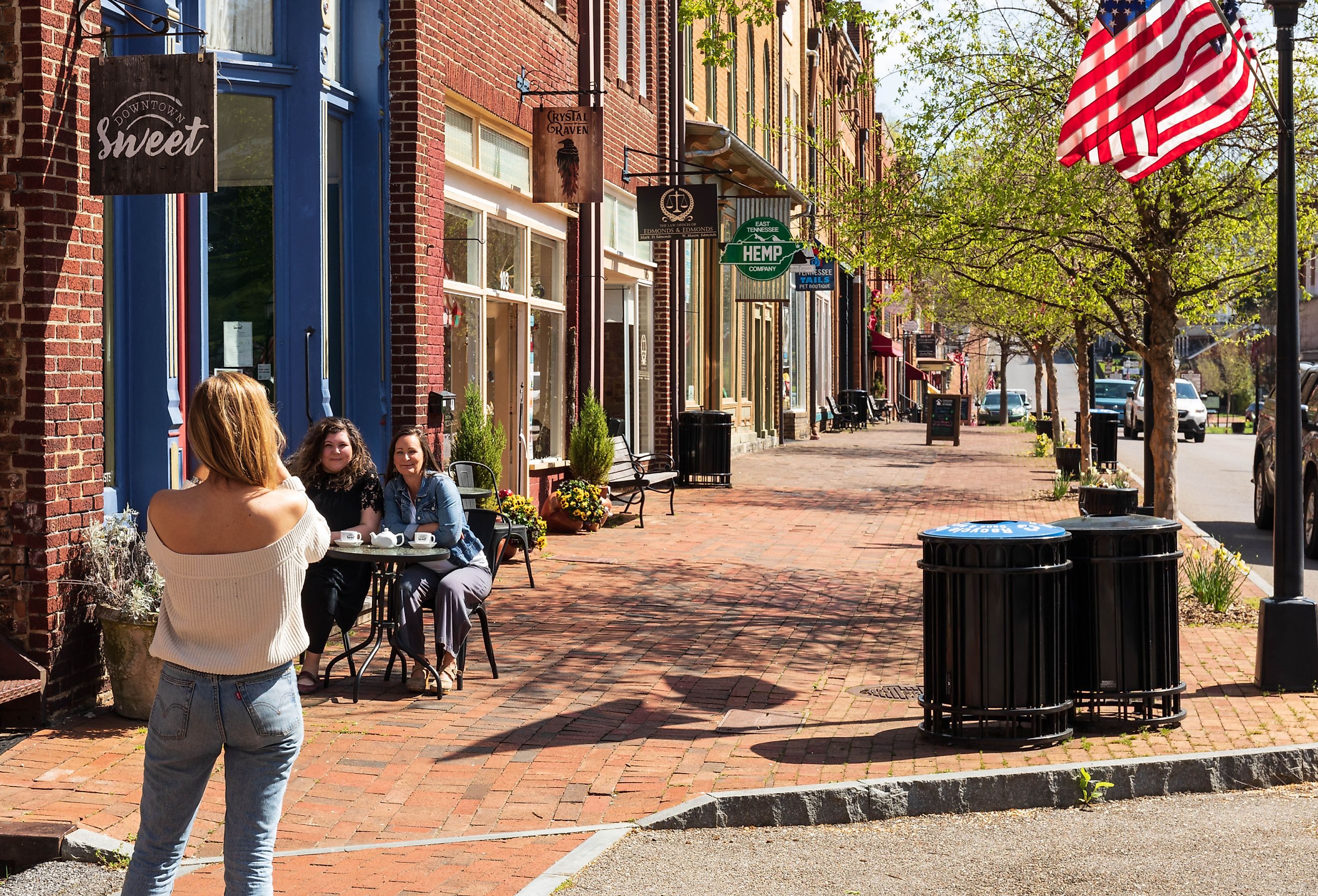
These Historic Towns in Tennessee Are Worth Exploring
Tennessee packs a sizable chunk of North America's history, and in its small towns, there is no shortage of historic sites dating back centuries. These towns host some of the state's finest historical landmarks and museums, like the first newspaper company in the state at Rogersville and even the tailor shop of President Andrew Johnson in Greeneville. Visiting these towns evokes a feeling of living in the past, and with plenty of historical attractions, visitors will have a field day just walking through. Without further ado, uncover the top historic towns in the Volunteer State worth visiting.
Elizabethton

History remembers the town of Elizabethton for hosting the first Independent American government in the Eastern Continental Divide in 1772. As a result, the town is full of rich North American history. Almost all parts of its downtown are on the National Register of Historic Places, and one of the most popular is the Elizabethton Covered Bridge. Also, the 1926 Elk Avenue concrete arch bridge is still in the downtown historic district, reflecting the architectural and engineering prowess of the region. Elizabethton also hosts Sycamore Shoals State Historic Park, where critical decisions leading to the creation of Tennessee and Kentucky states were made. The park also houses a museum, visitor center, and the remodeled Fort Watauga, which served as a fort against British-allied Indians.
Rutledge
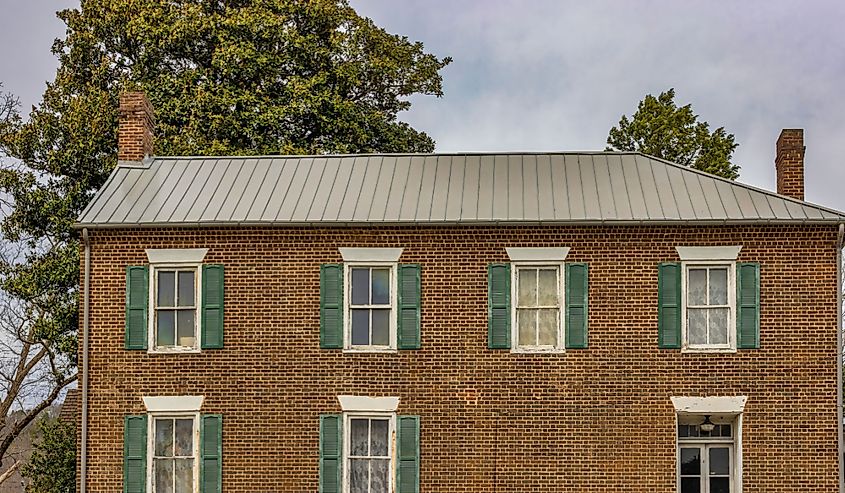
Rutledge, the county seat of Grainger County, is a historic town founded in 1797 named after General George Rutledge, a highly esteemed personality in nearby Sullivan County. Visitors to this town can begin a historic tour at President Andrew Johnson's tailor shop replica within the Grainger County Courthouse lawn. There, the former president briefly set up his shop after establishing it in Greeneville. William Cocke House is another historic attraction that reflects the town's political past and an enduring emblem of Greek Revival Style architecture, which was once popular in prehistoric East Tennessee. In addition, visitors can check out the Nance Building, a cultural center and museum where relics of Grainger County are preserved and exhibited.
Vonore
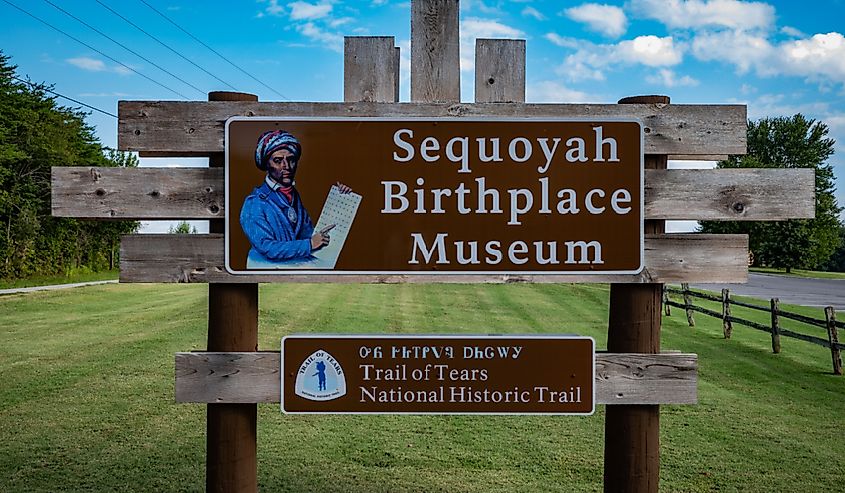
Vonore is a small town in Monroe County by the shores of Lake Tellico. The town was founded in the 1890s and packs a handful of historic tourist attractions, such as the Fort Loudon State Historic Park, where visitors can learn about this British fortress and the significant role it played in America's history. Vonore is also home to the Sequoyah Birthplace Museum, which commemorates the life and times of a Cherokee scholar renowned for creating a writing system for the Cherokee people. Finally, the town also features the Tellico Blockhouse Site, a military garrison created to maintain peace during the Cherokee-American wars, and it is a must-see attraction when visiting.
Harriman

Harriman is a beautiful town founded by the East Tennessee Land Company and named after Walter Harriman, the governor of New Hampshire, whose son was the company's managing director. Built in 1889, this town retains its old charm due to the elegant Victorian-style homes scattered across its downtown district. While a walk through this part of the town might be enough to satiate one's desires, visitors must not miss out on the Harriman Heritage Museum inside Princess Theatre to learn more about the town's history via artifacts and exhibits. Afterward, enjoy a movie at the Theatre to lighten up.
Sevierville
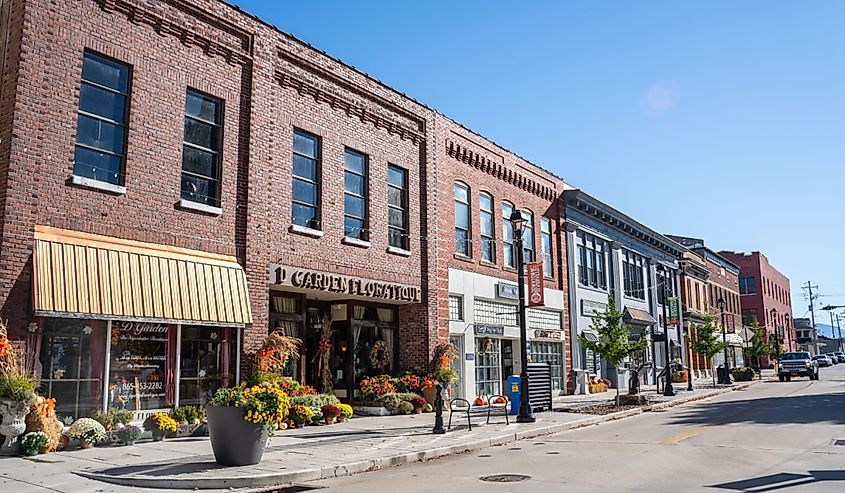
Sevierville is one of the oldest towns in Tennessee, where ancient and modern atmospheres combine smoothly. For history lovers, there are plenty of attractions to explore here, and a great starting point is the Buckingham House, the oldest house in the town and home to the first sheriff of Sevierville. Next, visit the town's top museums, including the Tennessee Museum of Aviation, the Hollywood Wax Museum, the Dolly Parton Statue (the singer's hometown), and the Sevier County Heritage Museum. After hopping museums, unwind at Tony Gore's Smoky Mountain BBQ & Grill, where barbeque sauces and grilled meats can make anyone lose track of time.
Greeneville
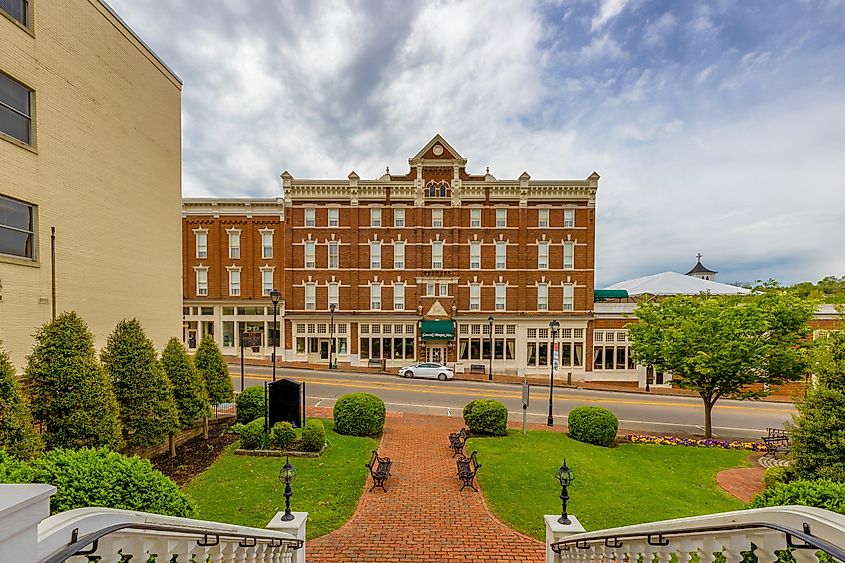
Greeneville is a small, charming town named after Nathaniel Greene, a Revolutionary War Hero renowned as the place where President Andrew Johnson began his political career. President Andrew Johnson became president after Abraham Lincoln was assassinated, and visitors to this town can learn more about the 17th president of America at the Andrew Johnson National Historic Site, which hosts his two homes, tailor shop, statue, and grave.
Greeneville displays its rich history at the Greeneville Greene County History Museum, which has 13 galleries and many artifacts. Also, the town hosts the General Morgan Inn, a famous destination for lodging and dining. From the hotel's lobby, one can embark on the A Walk With The President Tour, a 90-minute walk downtown to explore its architectural marvels.
Henning
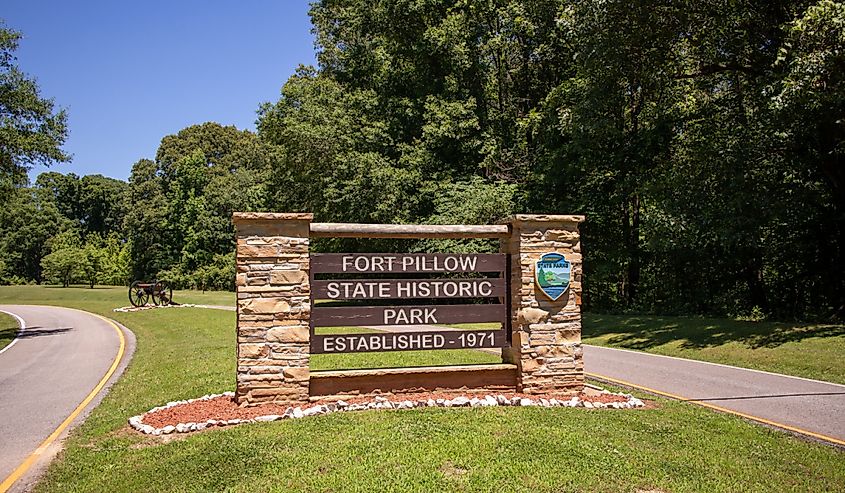
Henning is a small town of over 900 in Lauderdale County, established in the 1870s. While small, the town has an extensive history, mainly since one of the Civil War battles was fought close to it. On April 12, 1864, the Battle of Fort Pillow took place here and was won by the Confederates after the slaughter of numerous US troops, most of whom were African Americans. Visitors can learn more about this war by exploring the Fort Pillow State Park by the shores of the Mississippi River, which is the exact location of the war. In the town, also check out the Alex Haley Museum, the boyhood home of author Alex Haley and home to his grave.
Dandridge
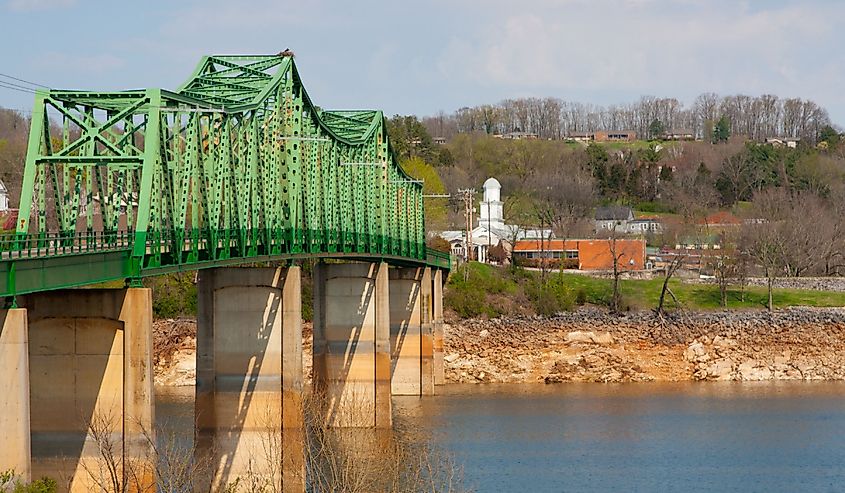
Dandridge is the second oldest town in Tennessee, founded in 1783. It was named after Martha Dandridge Washington, wife of President Washington, and was established long before Tennessee became a state. While its position by Lake Douglas, one of the largest in the state, is a draw for tourists and even its early founders, the town's historic allure stands tall. Visitors here can soak in its history at the Jefferson Courthouse, which houses a museum with artifacts and relics that offer a glimpse into a world left behind. Next, visitors can embark on a self-guided walk on the Revolutionary War Graveyard, the original and first settlement in the area. For something more adventurous, a walk through the town's downtown district is recommended, and while at it, visitors are free to grab Bible Burger and milkshake at the Tinsley-Bible Drug Store.
Jonesborough
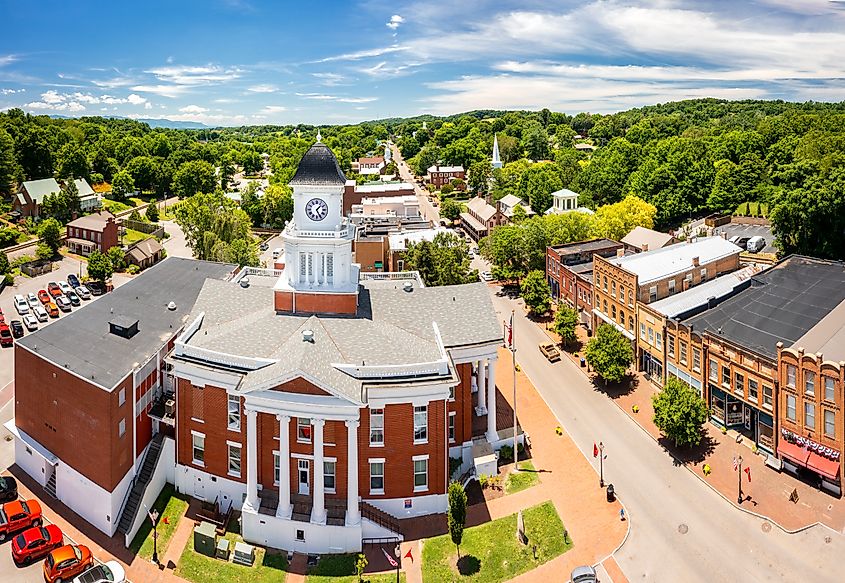
The history of Tennessee is not complete without its oldest town, Jonesborough. This town was incorporated in 1779 under North Carolina, 17 years before Tennessee became a state. For visitors, an ideal first port of call at such a historic place would be the oldest surviving house in the town - Christopher Taylor House in the downtown historic district, built in 1777. The next stop is the Chester Inn, a former hotel that doubles as a state historic site. This hotel is located downtown, and visitors can tour its rooms or enjoy an exhibition of the town's local history in the basement. If you visit in October, enjoy the National Storytelling Festival to learn more about the Appalachian people and their storytelling culture.
Rogersville

Rogersville was first settled in 1775 by the grandparents of Davy Crockett and is renowned in Tennessee as the birthplace of journalism. Knoxville Gazette, the first newspaper published in Tennessee, is located in this town, and its first edition was published in 1791. Visitors can explore the town's printing history and heritage by visiting the Tennessee Newspaper and Printing Museum on Depot Street. Before leaving, blend history and relaxation at the Hale Spring Inn, the oldest continuously operated inn in Tennessee, established in 1824, which played a critical role in the Civil War and hosted President Andrew Johnson.
From the beginnings of government in Elizabethton to the birthplace of journalism in Rogersville, history lovers will want to visit Tennessee. The towns in this state have not changed much from what they used to be in the past centuries, a way of preserving their historic heritage. For those that have changed much due to the surge of civilization, they still carved a niche for history by establishing downtown historic districts, museums, and historic sites. Visitors can easily satiate their hunger for history with several historic attractions across the small towns of the Volunteer State.











